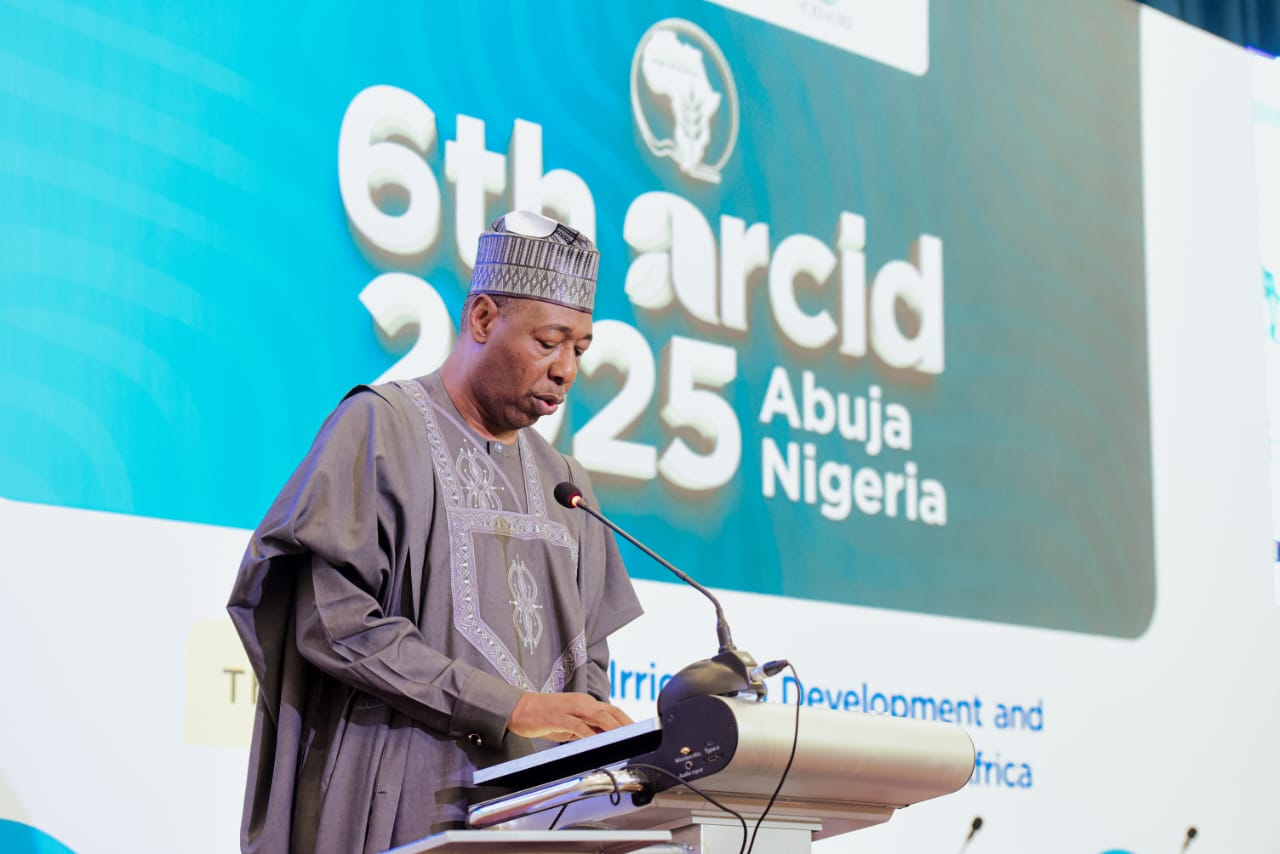BY MUSA IDRIS UMAR
Borno State Governor, Prof. Babagana Umara Zulum, has raised an urgent call for a paradigm shift in Africa’s agricultural practices—from rain-dependent methods to climate-smart and irrigation-based systems—as a critical response to the continent’s looming food security crisis.
Speaking at the 6th African Regional Conference of the International Commission on Irrigation and Drainage (ICID) in Abuja on Monday, the governor painted a dire picture of the region’s environmental challenges.
He pointed to the alarming degradation of Lake Chad, which has lost nearly 90% of its original size since the 1960s, describing the phenomenon as a stark symbol of the continent’s vulnerability to climate change.
'Once a source of life for over 30 million people across Nigeria, Niger, Chad, and Cameroon, Lake Chad’s decline is a stark reminder that irrigation is not merely important, but indispensable,' Gov. Zulum said, referencing data from the United Nations Environment Programme (UNEP).
He warned that erratic rainfall—on which nearly 65% of Sub-Saharan African farmland depends—has already begun to threaten agricultural productivity. Citing projections by the Food and Agriculture Organization (FAO), he cautioned that Africa could face a 50% reduction in crop yields by 2030 if urgent reforms are not implemented.
The governor, whose home state has been at the intersection of climate-induced displacement and violent conflict, stressed that strategic investments in irrigation infrastructure, climate-smart technologies, and policy reforms are not optional but essential for survival.
'To feed ourselves sustainably, we must rethink how we grow our food. Transitioning to resilient, water-smart approaches is imperative,' he said.
He advocated for regional cooperation on water governance, inclusive financing mechanisms, and stronger participation of women and youth in agriculture. He also called on research institutions and the private sector to play a more active role in driving innovation.
'In Borno, we are laying the groundwork for agricultural transformation through sustainable irrigation initiatives,' he added.
'Agriculture has the power to restore dignity and rebuild communities.'
Beyond technical solutions, Zulum’s address carried a moral urgency.
'Irrigation is not merely about water. It is about ensuring that a farmer in rural Mali, a herder in eastern Kenya, or a displaced family in the Lake Chad Basin can feed their children, live in dignity, and build a future. It is about peace and prosperity.'
The conference drew participation from key national and international stakeholders, including Senator George Akume, Secretary to the Government of the Federation; Professor Joseph Terlumun Utsev, Minister of Water Resources and Sanitation; and Mrs. Esther Didi Walson-Jack, Head of the Civil Service of the Federation.
Gov. Zulum was accompanied by members of his cabinet and elder statesman Dr. Musa Inuwa Kubo.

